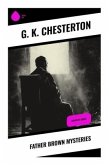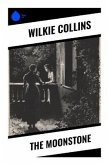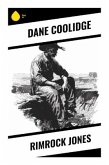In "Manalive," G. K. Chesterton crafts a delightful and thought-provoking narrative that explores themes of existence, identity, and the essence of life through the lens of a whimsical adventure. This novel merges comedy with profound philosophical musings, employing a style that is characteristically chestertonian-rich in paradox, wit, and vivid imagery. Set against the picturesque backdrop of a boarding house in London, the story revolves around Innocent Smith, whose enigmatic arrival incites a series of events that challenge societal norms and provoke existential inquiry, underscoring Chesterton's penchant for celebrating the miraculous in everyday life. G. K. Chesterton, a profoundly influential figure in early 20th-century literature, was known for his engaging essays, novels, and works of theology. His experiences with the rapid social changes of his time, including the implications of modernity and industrialization, significantly shaped his worldview, allowing him to infuse "Manalive" with a compelling critique of contemporary society alongside a fervent appreciation for life's simplicity and spontaneity. Though primarily a work of humor and adventure, "Manalive" invites readers to reflect on the deeper significance of human existence. It is recommended for those who appreciate a narrative that marries light-heartedness with meaningful philosophical exploration, encouraging readers to reconnect with the beautiful absurdity of life.
Bitte wählen Sie Ihr Anliegen aus.
Rechnungen
Retourenschein anfordern
Bestellstatus
Storno








